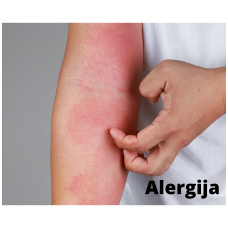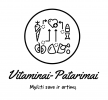Allergy

"Allergy" is a word that often excites more additional thoughts in our consciousness than it should. Allergy is the intolerance of a particular chemical substance. For example, we are allergic to coffee if we experience specific symptoms of deterioration after consuming a large amount of coffee. In some people, pronounced allergy symptoms appear after eating such common products as milk or wheat. Since allergy is similar to addiction, most often the allergy is caused by the food that the person most likes (is "addicted" to that product). If you think you are allergic but don't know who, the best way to know this is to contact an allergist or nutritionist who can investigate various allergy triggers and solve digestive problems that can cause allergies. Optimal balanced nutrition can significantly reduce allergic reactions. Vitamin C, calcium and magnesium help reduce the intensity of allergic reactions.
Dietary advice
Try to eat healthy. Do not use suspicious products, dairy products and cereals (these are the most common products that cause allergies), especially wheat. After 2 months, you will be able to start eating foods that can cause allergies again, one every fourth day. This way you will avoid allergic reactions. Perhaps you will even be able to consume a small amount of allergenic products every day.
Supplements
2 doses of multivitamin and mineral complex per day (Formula IV)
2 doses of antioxidant complex (Betaguard) (CRUCIFEROUS PLUS)
4 doses of vitamin C (SUSTAINED RELEASE VITAMIN C)
Calcium-magnesium complex 500 mg of calcium and 300 mg of magnesium per day (Kal-mag)
1 dose of probiotics (ACIDOPHILUS PLUS)

 +370 679 670 37
+370 679 670 37